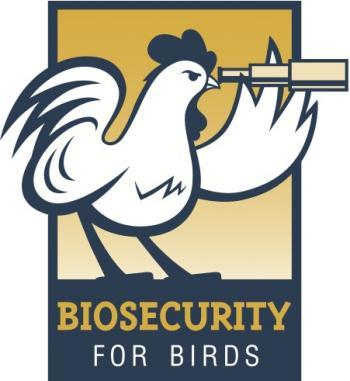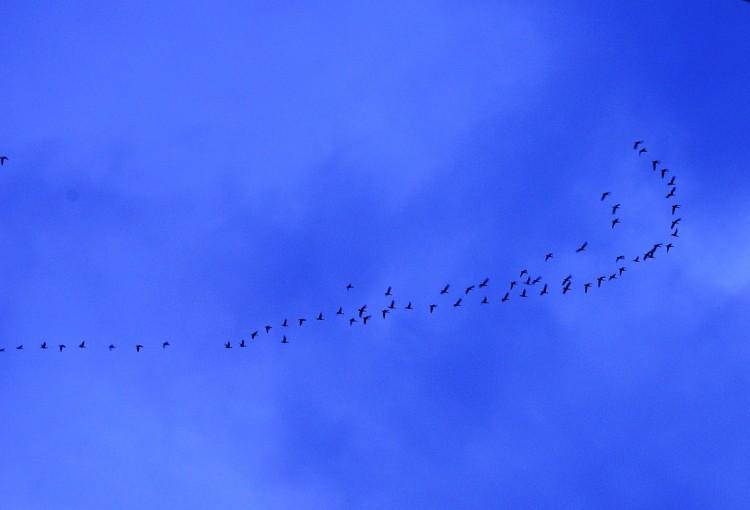The increasingly popular locavore movement—emphasizing fresh, locally grown food—has inspired many to raise their own chickens for eggs and poultry. Notable figures like Martha Stewart and author Barbara Kingsolver even have backyard poultry. In an effort to educate the public on how to best keep their home flocks safe and healthy, the USDA has launched a “Biosecurity for Birds” campaign.
The USDA recommends that birds raised for food receive sufficient, clean space, protection from predators, and separation from wild birds as much as possible. They also suggest a number of precautions for keepers to follow in order to protect domestic birds from avian influenza, such as instructing keepers to wash their hands before and after tending their flocks, and avoiding tool sharing with neighbors. In addition, they recommend that food and water for domestic birds should stay covered and get changed on a daily basis.
While North America has seen incidents of low pathogenicity avian influenza (LPAI), other regions have had to contend with high pathogenicity avian influenza (HPAI)—a serious problem, according to the USDA. The greatest risk for U.S. backyard and wild birds would be if LPAI mutated to the more dangerous form. Preventing infections reduces the risk.
Bird keepers should know the symptoms of bird flu and other bird pathologies: reduced egg production, tremors, loss of appetite, neck and head swelling, and purple discoloration of wattles, legs and combs. Keepers are encouraged to build a strong relationship with their local vet, who can provide expert advice, disease prevention, and lifesaving care for the animals.
For more information, visit www.aphis.usda.gov/animal_health/birdbiosecurity/
The USDA recommends that birds raised for food receive sufficient, clean space, protection from predators, and separation from wild birds as much as possible. They also suggest a number of precautions for keepers to follow in order to protect domestic birds from avian influenza, such as instructing keepers to wash their hands before and after tending their flocks, and avoiding tool sharing with neighbors. In addition, they recommend that food and water for domestic birds should stay covered and get changed on a daily basis.
While North America has seen incidents of low pathogenicity avian influenza (LPAI), other regions have had to contend with high pathogenicity avian influenza (HPAI)—a serious problem, according to the USDA. The greatest risk for U.S. backyard and wild birds would be if LPAI mutated to the more dangerous form. Preventing infections reduces the risk.
Bird keepers should know the symptoms of bird flu and other bird pathologies: reduced egg production, tremors, loss of appetite, neck and head swelling, and purple discoloration of wattles, legs and combs. Keepers are encouraged to build a strong relationship with their local vet, who can provide expert advice, disease prevention, and lifesaving care for the animals.
For more information, visit www.aphis.usda.gov/animal_health/birdbiosecurity/







